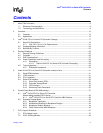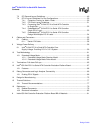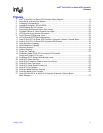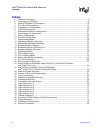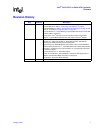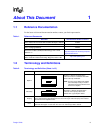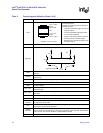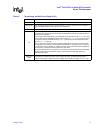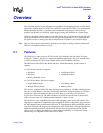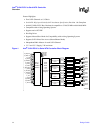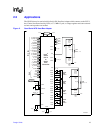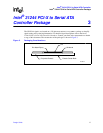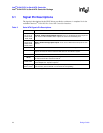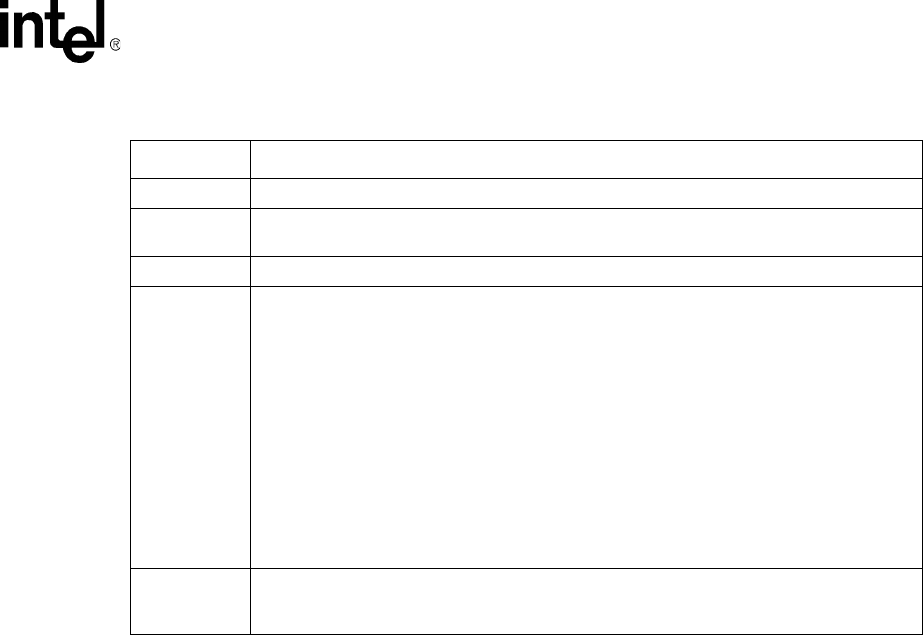
Design Guide 11
Intel
®
31244 PCI-X to Serial ATA Controller
About This Document
RxData Serially encoded 10b data attached to the high-speed serial differential line receiver.
10b encoding
The 8B/10B encoding scheme transmits eight bits as a 10-bit code group. This encoding is
used with Gigabit Ethernet, Fibre Channel and InfiniBand*.
Jitter Jitter is a high-frequency, semi-random displacement of a signal from its ideal location.
ISI
Inter-symbol interference. Data-dependent deterministic jitter caused by the time differences
required for the signal to arrive at the receiver threshold when starting from different places in
bit sequences (symbols).
For example media attenuates the peak amplitude of the bit sequence [0,1,0,1...], more than
it attenuates the peak amplitude of the bit sequence [0,0,0,0,1,1,1,1...], thus the time required
to reach the receiver threshold with the [0,1,0,1...] sequence is less than required from the
[0,0,0,0,1,1,1,1...] sequence.
The run length of 4 produces a higher amplitude which takes more time to overcome when
changing bit values and therefore produces a time difference compared to the run length of
1-bit sequence. When different run lengths are mixed in the same transmission the different
bit sequences (symbols) therefore interfere with each other.
ISI is expected whenever any bit sequence has frequency components that are propagated
at different rates by the transmission media. This translates into high-high-frequency,
data-dependent, jitter.
Differential
Signal
A signal derived by taking the difference between two conductors. In this spec a differential signal
is comprised of a positive conductor and a negative conductor. The differential signal is the
voltage on the positive conductor minus the voltage on the negative conductor (i.e., TX+ – TX-).
Table 2. Terminology and Definition (Sheet 3 of 3)
Term Definition



